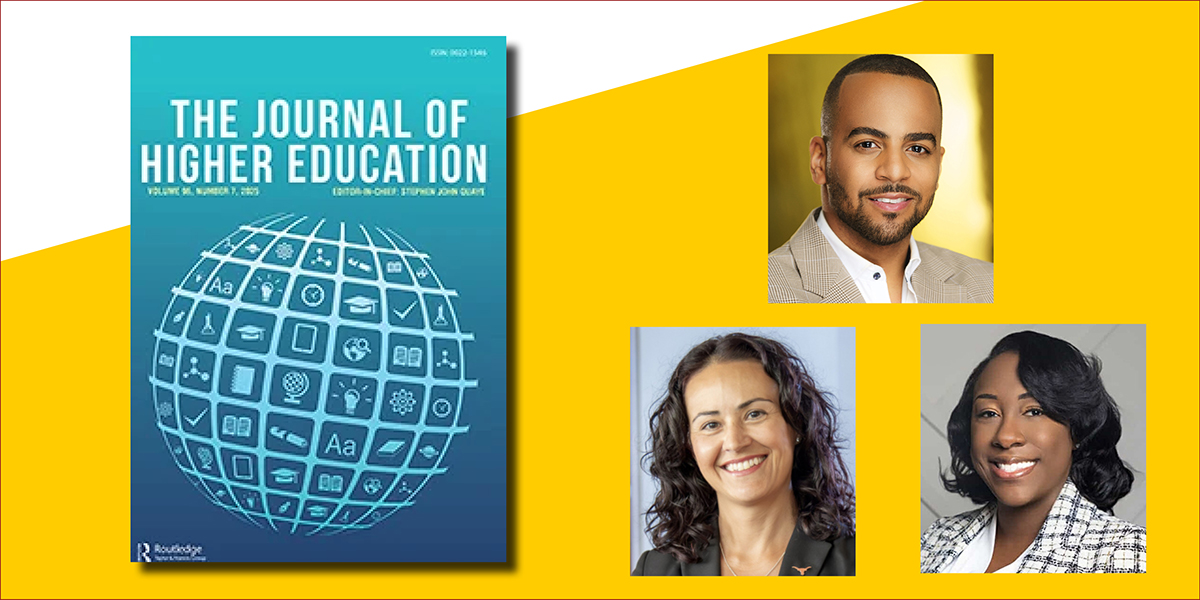By Royel M. Johnson
USC Rossier Associate Professor
Last spring, I reached out to my colleague and friend Stephen John Quaye, editor of The Journal of Higher Education, about the need for a special issue that could meet this moment. Across the country, we were watching statehouses advance a wave of legislation designed to silence educators, criminalize dissent and dismantle decades of progress toward inclusion. These attacks on diversity, equity and inclusion (DEI) programs — and the teaching of race, gender and sexuality — were not isolated incidents. They were coordinated efforts to control what knowledge counts, whose voices matter and what stories get told.
Stephen shared the same sense of urgency, and soon after, he invited me to co-edit the issue with two extraordinary scholars whose work I deeply admire — Liliana M. Garces of the University of Texas at Austin and Kaleb Briscoe Brown of the University of Oklahoma. Together, we began to imagine what it would look like to bring leading researchers, practitioners and policy thinkers into conversation about the scale and stakes of this legislative onslaught. The result is the first special issue The Journal of Higher Education has published in nearly twenty years: “Countering Legislative Attacks on Higher Education: Challenges, Strategies, and Future Directions.”
We received more than 70 submissions. This reflects both the scholarly appetite for analysis and the depth of anxiety within our field. The nine articles we ultimately published are field-shaping. Collectively, they offer insight into the political and ideological forces driving anti-DEI, anti-CRT, and anti-LGBTQ+ legislation; examine the toll these policies have taken on educators and students; and offer pathways for resistance, resilience, and institutional adaptation.
In our introduction, we describe how these legislative efforts rely on what scholars have defined as repressive legalism — the strategic use of law and bureaucratic threats to suppress equity work that is still legal. Faculty and administrators retreat out of fear of lawsuits, not because they have broken any law, but because they have internalized the chilling message that equity itself is dangerous. That fear is the point. It produces silence, erases dissent, and allows authoritarian logics to take root under the banner of compliance.
As my co-editors and I argue, these attacks are not simply about DEI — they are about democracy. When lawmakers dictate what can be taught, who can belong, and which histories are permissible, they are not safeguarding education; they are weaponizing it. Universities, long considered laboratories of critical thought and civic formation, are being recast as ideological battlegrounds. The aim is to delegitimize higher education’s public purpose and reassert the primacy of power over truth.
Yet the issue also brings to life what real courage looks like on the ground. In the pages of this special Journal issue, you’ll meet faculty who quietly reshape their lessons to make space for hard conversations, even when the rules say otherwise. You’ll hear about campus attorneys who spend late nights puzzling over legal loopholes, determined to protect their colleagues’ right to speak freely. You’ll see staff members who, after long days at work, come together to organize support networks for students who feel targeted or alone. These stories aren’t just about isolated acts of defiance — they are about people looking out for each other, building strength together and refusing to give up on what matters. They remind us that higher education is at its best when it dares to question power, not just reflect it.
The publication of this special issue is itself a form of scholarly resistance. Knowledge production has always been political, but in repressive times, it becomes an act of courage. The contributors to this volume are telling the truth about what is happening in real time — documenting the emotional, pedagogical and structural consequences of legislative overreach and offering evidence-based strategies for action. As editors, we wanted this issue to do more than diagnose the problem. We wanted it to equip the field with tools for response — legal, pedagogical and moral.
I am deeply grateful to Stephen Quaye, my co-editors, the authors, and reviewers who made this special issue possible. Editing it has been one of the most meaningful professional experiences of my career. It reminded me that even in dark times, solidarity is possible — and necessary. Our collaboration has been an act of intellectual and emotional sustenance, a way to transform grief and frustration into purpose.
This special issue is not an endpoint but an invitation — to defend the public mission of higher education with renewed clarity and conviction. The politicized attacks we face are not only assaults on DEI; they are assaults on truth, history and democracy itself. We cannot meet them with silence. We must meet them with evidence, community and collective courage.








